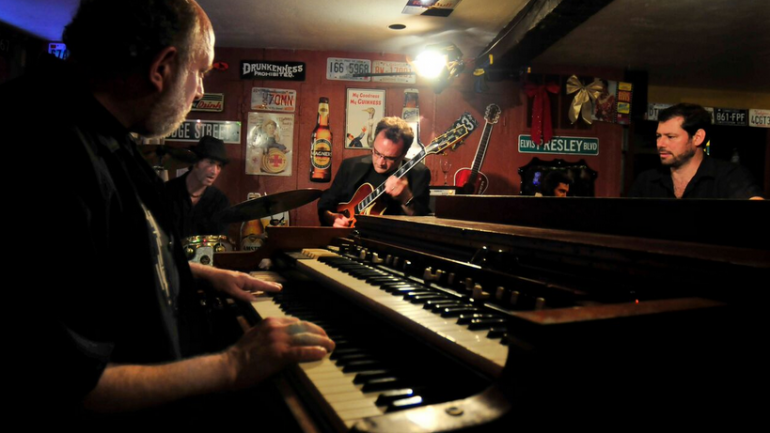
SFF program director Jeff Schmidt caught up with Beth Cloutier, director of LAST STAND AT DODGE ahead of her film's World Premiere at The Cabot on Friday night at 9:20pm.
JS: We're excited to host the World Premiere your film and present it as our inaugural North Shore Spotlight - how does it feel to bring LAST STAND AT DODGE home?
BC: Salem, MA and the North Shore are home to me. I grew up here so to make a film that takes place in the area and to bring it back to share with the community is an honor.
JS: As a filmmaker, do you think it's more of a challenge to tell a story in your own backyard or is it an advantage?
BC: There are challenges and advantages of telling a story from one’s community. The advantage is that people know you and are willing to open up and trust you to tell the story. Relationships grow and deepen as the film making process ensues. This creates respect and trust between the filmmaker and those being filmed.
JS: How did you first connect with Fats Hammond and what compelled you to start filming?
BC: I first connected with Fats Hammond back in the early 2000s. But it really began before that. When I was in high school, I would watch Marty Rowen play at the Red Room in Salem in the 1990s pre Fats Hammond days. I went to college and when I returned I made sure to see Marty play. In the early 2000s, upon visiting home from living in NYC, I went to Dodge Street on a Tuesday night on the recommendation of a friend. I was immediately taken by the music and performance but what was just as special was the community surrounding Tuesday nights. All walks of life came to see Fats Hammond. College kids, veterans, bikers, professionals, 20 something’s to 80 year olds and folks from outside Salem would congregate to watch Fats play. After about an hour people were up dancing with one another. It didn’t matter who you were, everyone got along and had a good time together.
I moved to Marblehead for a year from 2009-2010 to help out with some family business. This was between my time living in NYC and LA. During that year I went to Dodge Street on Tuesday nights. I was interested in filming artist portraits of Ken, Marty, Mike and Benny at first but as the year went on I realized that there was a story to tell.
JS: When Dodge Street closed and eventually was demolished, you were still editing the film. Did it feel strange spending so much time looking at that footage, knowing that the place no longer existed?
BC: In the beginning I was sad to learn that Dodge Street Bar & Grill had closed. I had so many good memories there. But times changes and people move on.
JS: You've worked as director of photography for many documentaries over the years, how did it feel to sit in the director's seat this time around?
BC: Moving into the director’s chair was a bit of a challenge but one that I welcome. As a DP I work closely with directors and producers on documentaries and at times I have to act as an interim director on shoots making sure to capture the vision of the production.
JS: Music seems to be a through-line in your life, I understand you've got a new project aimed at giving "other Fats Hammonds" more widespread visibility?
BC: Yes, I created a business and channel called Local Music Channel that focuses on highlighting local artists from the community and the venues that support them. LAST STAND AT DODGE was the inspiration for the channel. Interacting with fans of the film throughout the country and internationally on social media, I learned that many communities were affected by the closing of local clubs leaving people without a place to see their favorite local musicians. I decided to create a channel thinking if I can show musicians and artists filmed high end with good audio in local venues from their community and post it online, that the good quality will attract more people to go out and support local musicians while showing the cool places they can view them.
JS: What do you hope the audience takes away from LAST STAND AT DODGE?
I hope the audience learns what their fellow local musicians go through in life to provide incredible entertainment for us in the community. That we need to respect the art and not take it for granted. That these musicians work hard and should be paid well for their craft. Community benefits from that talent that lives within it. Music venues provide a place where community can come together to enjoy life and forget about their daily problems. It is important to support the venues that provide this. If we lose these places and the music we lose part of our culture and the bonds and identity that are created by it.

